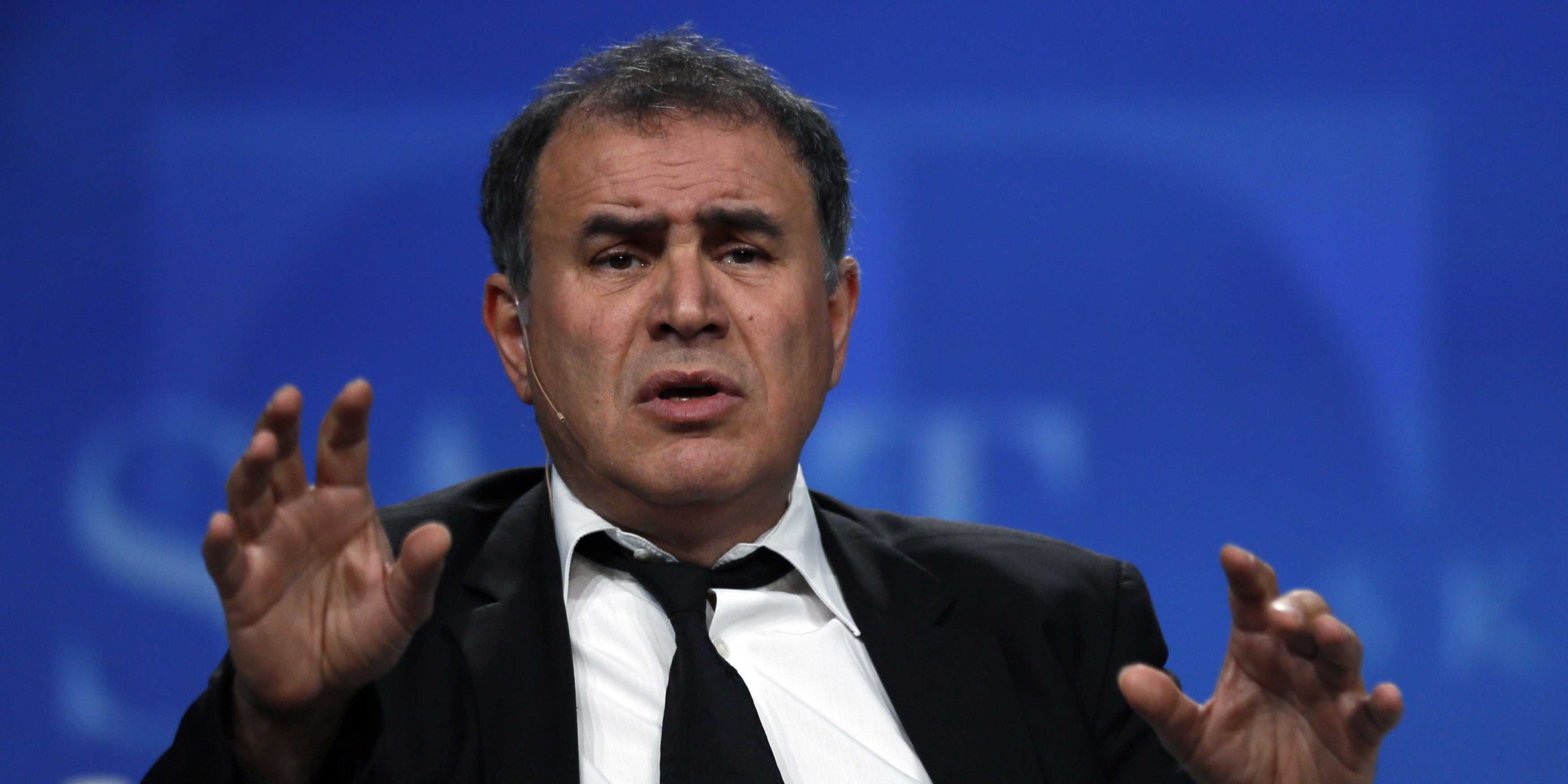Nouriel Roubini, the economist known as “Dr. Doom”, has been warning of disaster for two decades. He rose to prominence after being among the commentators to call the 2008 financial crisis. Most recently, Roubini has warned that markets and the economy are sleepwalking into a new catastrophe. Loading Something is loading.
Thanks for signing up!
Access your favorite topics in a personalized feed while you’re on the go.
Nouriel Roubini has been everywhere lately. Wall Street’s “Dr. Doom” has been out front in every big news event in markets in the last year ringing the alarm over catastrophe that he says is right around the corner.
Whether he’s blasting crypto as a criminal enterprise in the wake of FTX, or warning that markets are headed for a “Bermuda Triangle” of risk, the economist has a lot of opinions, and most are pretty dire.
But who is the latest iteration of Dr. Doom (there have been many before him), and has he always been this bearish?
Roubini rose to prominence with a particularly huge call in the early 2000s, when he predicted a “nightmare hard landing scenario,” and began ringing the alarm for the collapse of the US housing market in 2006. When he spoke of an impending housing crash at the International Monetary Fund that year, the audience chuckled, the New York Times reported.
But when the Great Financial Crisis struck, Roubini was lauded among a handful of market luminaries who called the crash when other experts had brushed off any concerns that the economy was on weak footing.
“He sounded like a madman in 2006,” IMF economist Prakash Loungani told the Times, after inviting Roubini to the IMF conference that year. “He was a prophet when he returned in 2007.”
His most recent prediction has been for the US to enter a stagflationary debt crisis that will ravage the economy. It’ll be like Frankenstein’s monster, combining the worst aspects of 1970s stagflation and the 2008 debt crisis.
Nouriel Roubini economics professor at New York University attends 48th edition of Economic Forum of Cernobbio on September 02, 2022 in Cernobbio, Italy. Photo by Pier Marco Tacca/Getty Images Gloom and doomBorn in Istanbul to an Orthodox Jewish family, he studied economics in Italy, though it went against his parents’ expectations for him to enter the rug dealing business like his father.
“I was kind of like a black sheep,” Roubini said of his childhood in an interview with GQ.
After he completed his undergraduate studies in Italy, he obtained a PhD in international economics at Harvard and taught economics at Yale, before taking up a teaching position at New York University, a job he’s held since 1995.
Roubini has been known for his unusual approach to economics. When asked for his methodology for predicting a recession at the 2006 IMF conference, Roubini said his predictions were based on intuition, referring to his economic model as a “smell test” or a “duck test.”
“If it looks like a recession and talks like a recession and quacks like a recession, it should be a recession,” he said, per the Financial Times.
Economist Jeffrey Sachs, who served as Roubini’s doctoral advisor at Harvard, has praised Roubini for his unique “mix of skills” as an economist. Still, despite his 2008 success, he’s also faced criticism over the years for his relentless and often incorrect calls for disaster to strike.
In 2005, he predicted Hurricane Katrina would crescendo into an economic disaster, a prediction that fizzled. In 2009, as the economy struggled to rise from the subprime crash, he warned the US would face a “double-dip” recession, though the downturn officially ended in the summer of that year, according to the National Bureau of Economics Research.
Nouriel Roubini AP Images His critics say the success of his 2008 call was inevitable with so many bearish predictions under his belt.
“Even a stopped clock is right twice a day,” Anirvan Banerji, a critic of Roubini’s told the New York Times in 2008.
Roubini, now 65, is predicting another financial crisis. He’s published 13 op-eds in the publication Project Syndicate over past year warning of stagflation, debt, or a dreaded combination of the two.
He didn’t respond to Insider’s multiple requests for comment, and told Entrepreneur many years ago that he turns down 95% of his media inquiries — besides CNBC and Bloomberg, who he says call him to appear on air “every week.”
Those who have spoken to Roubini say his demeanor is in line with what one would expect from a perpetually gloomy economist. In an 2009 interview, the Atlantic described his monotone speech as if coming from “an invisible teleprompter” In a 2008 interview, the New York Times described his expression as “permanently pained,” radiating an “aura of gloom about him.”
He’s not always in character, though. Roubini rode a wave of fame after calling the 2008 crisis, after which he appeared upbeat in television appearances. In particular, his name was splashed across various media outlets, who reported throngs of guests attending lavish Manhattan penthouse parties.
At one point, he was ordered by the state of New York to remove an unauthorized hot tub from the roof of his penthouse.
“The recession has been great for me,” he told New York Magazine in 2009, which reported him being seen with “at least two girls” hand in hand throughout the night.
“They love my beautiful mind,” he said. “I am ugly, but they’re attracted to the brains. I’m a rock star among geeks, wonks, and nerds.”
Personally, he rejects the nickname Dr. Doom.
“It’s a nice nickname,” he told the Entrepreneur in 2009. “But I tell you, the day when we reach the bottom, I’ll be the first one to call in and say Doctor Doom has become Doctor Boom. I’m not a permabear.”
